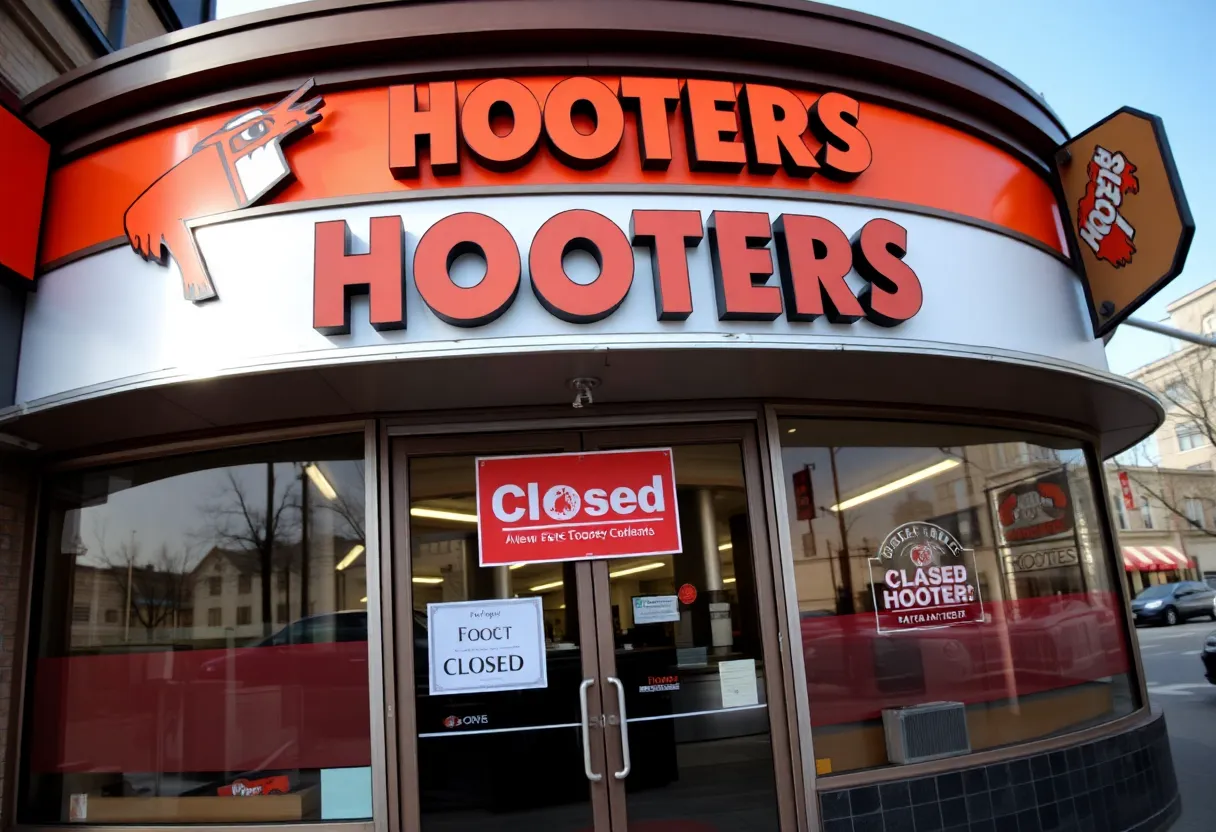News Summary
Hooters has announced the permanent closure of more than 30 locations across the U.S., including in states like Florida and Georgia, as part of its Chapter 11 bankruptcy restructuring. This move reduces the chain’s footprint significantly amidst financial difficulties and high operational costs. Hooters plans to shift to a franchising model to stabilize its business, easing the burden of its $376 million debt. The company remains committed to supporting affected employees and enhancing customer relationships while striving for profitability.
Florida
Hooters has permanently closed more than 30 of its company-owned locations across several states, including Florida, Georgia, Michigan, North Carolina, South Carolina, Tennessee, and Texas. This decision comes in the wake of the company’s Chapter 11 bankruptcy filing in March, which signaled a significant restructuring effort aimed at ensuring the chain’s long-term viability.
Details of Closures and Bankruptcy
Among the affected restaurants are two locations in South Carolina, situated in Columbia and Rock Hill. With these recent actions, Hooters’ existing footprint will shrink to around 200 locations in the United States and 60 locations internationally. The chain had previously closed about 40 underperforming outlets earlier in 2024 before proceeding with its bankruptcy plans, which are tied to a staggering $376 million in debts.
Shift to Franchise Model
In a strategic move to stabilize its financial situation, Hooters intends to transition to a franchising business model. This involves selling its 100 company-owned restaurants to two franchisee groups, which is expected to provide necessary resources for the company to focus on its remaining locations. The recent closure of these restaurants has been described as “difficult” yet necessary, as Hooters looks to position itself more effectively for future profitability.
Operational Challenges
The restructuring is a response to increased operational costs due to inflation and changing consumer spending habits, primarily as disposable incomes decline. Hooters’ CEO emphasized the importance of this transition, stating that the company requires the right resources to rejuvenate its remaining establishments and improve service delivery.
Broader Industry Context
The closures of Hooters locations reflect a larger trend within the casual dining sector, where numerous chains are grappling with significant economic pressures. Hooters, like many others, has faced challenges beyond financial struggles, including lawsuits connected to its hiring practices. Nevertheless, the company remains dedicated to providing quality customer service and maintaining positive relationships with its clientele.
Commitment to Employees and Customers
As the restructuring moves forward, Hooters has reiterated its commitment to supporting the employees affected by the closures. The company has expressed gratitude towards its loyal customer base for their continued support during this transition phase.
Looking Ahead
As Hooters veers into a new operational model amidst its ongoing bankruptcy process, the focus will be on revitalizing its brand and improving consumer trust. With plans to boost its franchise presence, the company aims to stabilize and ultimately grow its operations further down the line.
Hooters, which once operated over 300 locations, is looking to ensure its survival in an increasingly competitive restaurant landscape, where adaptability and financial prudence are paramount to success.
Deeper Dive: News & Info About This Topic
- WJCL: Hooters Closes Locations in Georgia, South Carolina
- Wikipedia: Hooters
- Post and Courier: SC Hooters Bankruptcy
- Google Search: Hooters Chapter 11 bankruptcy
- USA Today: Hooters Restaurant Closing
- Encyclopedia Britannica: Hooters
- WCNC: Hooters Abruptly Closes Dozens of Restaurants
- Google News: Hooters closures
- Blavity: Hooters Abruptly Closes Many Restaurants
- Google Scholar: Hooters bankruptcy

Author: STAFF HERE FLORENCE WRITER
The FLORENCE STAFF WRITER represents the experienced team at HEREFlorence.com, your go-to source for actionable local news and information in Florence, Florence County, and beyond. Specializing in "news you can use," we cover essential topics like product reviews for personal and business needs, local business directories, politics, real estate trends, neighborhood insights, and state news affecting the area—with deep expertise drawn from years of dedicated reporting and strong community input, including local press releases and business updates. We deliver top reporting on high-value events such as the Florence Festival of Lights, Pee Dee Pride, and agricultural expos at the Florence Center. Our coverage extends to key organizations like the Florence Regional Chamber of Commerce and the Pee Dee Area Council of Governments, plus leading businesses in healthcare and retail that power the local economy such as McLeod Health and Pee Dee Electric Cooperative. As part of the broader HERE network, including HERECharleston.com, HEREColumbia.com, HEREGreenville.com, and HEREHiltonHead.com, we provide comprehensive, credible insights into South Carolina's dynamic landscape.





